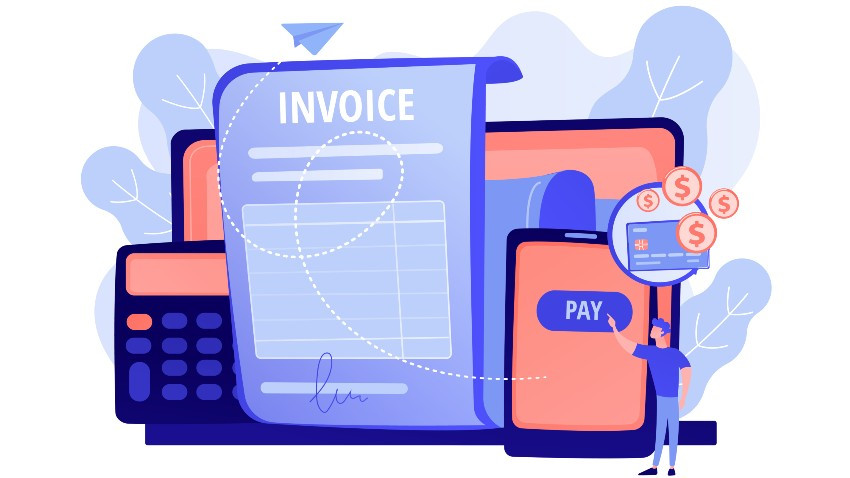
Invoicing automation has proven to be a game-changer for large enterprises, revolutionizing the way they manage their financial processes. As organizations scale and handle complex operations, manual invoicing becomes increasingly inefficient and error prone. Invoicing automation offers a comprehensive and transformative solution that streamlines invoicing workflows, enhances financial efficiency, and drives sustainable growth. Here's how invoicing automation is a game-changer for large enterprises:
1. Efficiency and Time Savings
For large enterprises dealing with a high volume of transactions and clients, manual invoicing can be a significant drain on time and resources. Invoicing automation enables the swift generation and delivery of invoices, saving valuable time for finance teams. Automated systems can process large batches of invoices simultaneously, reducing the need for manual data entry and eliminating repetitive tasks. This enhanced efficiency allows finance teams to focus on more strategic initiatives and financial analysis.
2. Accuracy and Error Reduction
Manual invoicing processes are prone to human errors, such as incorrect data entry or miscalculations. Invoicing automation minimizes the risk of errors by automating the entire invoicing process. Automated systems ensure accurate calculations, apply predefined billing rules consistently, and eliminate the need for manual checks. This accuracy leads to error reduction and instills confidence in the financial integrity of the enterprise.
3. Customization and Personalization
Large enterprises often have diverse client bases with varying invoicing requirements. Invoicing automation allows for customized and personalized invoicing, catering to the specific needs of each client. Automated systems can generate invoices with individualized details, payment terms, and branding elements, providing a personalized touch to each transaction. This level of customization enhances customer satisfaction and reinforces the enterprise's professional image.
4. Seamless Integration with ERP Systems
Large enterprises typically use enterprise resource planning (ERP) systems to manage their financial operations. Invoicing automation seamlessly integrates with ERP systems, enabling smooth data flow between invoicing and financial databases. This integration ensures that all financial data is up-to-date and accurate, facilitating better financial reporting and analysis.
5. Streamlined Billing for Large Client Portfolios
Large enterprises often have extensive client portfolios with recurring billing needs. Invoicing automation excels in managing large-scale billing operations, particularly for subscription-based services or long-term contracts. Automated systems handle recurring invoicing effortlessly, ensuring that clients receive accurate invoices on time. This streamlining of billing processes enhances client satisfaction and builds long-term relationships.
6. Automated Payment Reminders and Collections Management
Late payments can pose challenges for large enterprises, impacting cash flow and financial stability. Invoicing automation includes automated payment reminders and collections management features. Automated systems send timely payment reminders to clients and handle collections systematically. This proactive approach to accounts receivable management improves cash flow predictability and reduces outstanding receivables.
7. Enhanced Compliance and Security
Large enterprises often operate in multiple regions with varying tax regulations. Invoicing automation incorporates compliance checks to ensure adherence to local tax laws and invoicing standards. Automated systems apply the appropriate taxes based on the client's location and the nature of the transaction, reducing the risk of non-compliance. Additionally, invoicing automation prioritizes data security, safeguarding sensitive financial information from potential breaches.
8. Real-Time Insights and Reporting
Invoicing automation provides real-time insights into invoicing and payment activities. Large enterprises can access comprehensive reports and analytics, gaining a clear view of financial performance and trends. These real-time insights enable better decision-making, financial planning, and proactive measures to optimize financial operations.
9. Cost Savings and Resource Allocation
By automating the invoicing process, large enterprises can reduce administrative costs, save on paper usage, and allocate resources more efficiently. Invoicing automation reduces the need for manual labor and minimizes the risk of costly errors. Cost savings enable large enterprises to invest in growth initiatives and innovation, driving sustainable expansion.
Conclusion
Invoicing automation is undeniably a game-changer for large enterprises, transforming their financial workflows and enhancing operational efficiency. The benefits of efficiency gains, error reduction, customization, and seamless integration with ERP systems position large enterprises for greater success in managing their financial processes. With automated payment reminders, collections management, compliance assurance, and real-time insights, invoicing automation delivers a competitive advantage for large enterprises in a fast-paced and evolving business landscape.
By embracing invoicing automation, large enterprises can optimize their financial operations, enhance customer satisfaction, and establish a strong foundation for sustainable growth and success.
Work 365 offers monthly billing service and automated recurring billing to Microsoft partners and software vendors.





